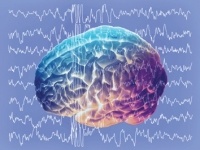-
RMR
26th Feb 2013
Binaural beats are non-musical sounds that can get your brain into a variety of desired states. Essentially, a binaural beat recording consists of two simple sounds — one heard by each ear — of almost the same frequency. The slight frequency difference (say 30 Hz) creates interesting effects in the brain. The frequency difference is the important thing: A 20 Hz "beat" theoretically creates effects very different from a 10 Hz beat.
The beat frequency matches the frequencies of brain signals in different states. Our dominant brain frequency when we're "feeling hyper" is different from when we're half-asleep, which is different from when we're awake and relaxed. These frequencies go up from the "delta" of deep sleep, through the alpha (approx 10 Hz) of semi-sleep and the beta of "normal activity" (approx 20 Hz), all the way to gamma (50+ Hz).
Theory says that the brain gets affected by the beat frequency you hear. For a basic explanation, read the Wikipedia entry. There's a good number of binaural beats apps available for iPhone and Android devices. Let's look at how they change your brain's dominant state — from tense to relaxed, from dreamy to decisive, and so on.
In this territory, you need to be (a) critical of claims, (b) experimental, and (c) put safety first. That said, is this stuff any good? Here are a few real-life scenarios.
It's 9 AM and you're sluggish; you're still not wide awake. You could have some coffee and jolt your system into action. Theoretically, your brain was at a lower frequency, and the coffee gets it into the "mid-beta" range.
It's 7.30 PM and you're tense, still thinking about a work deadline. Your friends are telling you to relax, and you can't. Your brain is probably in "high beta." Maybe you calm yourself down with some mindless activity? Or perhaps you "switch off mentally" and fall sleep for a few minutes, then wake up refreshed? If you did, your frequency went down to alpha.
There's a pressing issue you can't find a solution to. After some deep relaxation, the answer becomes clear on its own. Maybe your brain went into the "theta range" and pinpointed a solution you already knew.
My limited experience is that binaurals get me out of a sluggish state into alertness (without the caffeine), and that they help me relax when I'm hyper.
If this — the possibility of altering your brain at will — sounds too good to be true, it actually is. For binaural beat sounds to work, you need to be carefully experimental.
If you're the explorative type, here's one place where you can download a range of binaural beat frequencies (MP3) — but there's no explanation about what the different frequencies can do.
A categorized listing of beats for iPhone is here. An Android app I've been recommended (which I haven't tested) is Binaural beats therapy – beta, by Giorgio Regni.
If a whole new world seems to open up after a couple of uses, you need to be careful. Marketers for binaural beats apps — and the enthusiast community — speak about everything from deep insightfulness to altered states of consciousness to "astral projection." There's plenty of science behind the benefits, though — this 1997 paper, and this one, for example — and interesting articles like this one.
As I see it, there are two problems with plunging into this kind of thing: Firstly, different people have different experiences, so you can't entirely rely on what is claimed for a certain frequency. For example, without preconceived ideas, I found that gamma frequencies relax me — and that's not what they're usually said to do. Secondly, it's new-age, so you can't trust it as much as things that have been known for centuries (like meditation and coffee). I'd suggest reading the Wikipedia entry in full, plus a Google search — then downloading a popular app with presets.
If you've tried binaural beats, what's your experience been like? Would you even try a "digital drug" app? Tell us below!
Training Your Brain With Your Smartphone: A Little Intro To Binaural Beats | TechTree.com
Training Your Brain With Your Smartphone: A Little Intro To Binaural Beats
Are brainwave-changing sounds effective, dangerous, or silly?
News Corner
- DRIFE Begins Operations in Namma Bengaluru
- Sevenaire launches ‘NEPTUNE’ – 24W Portable Speaker with RGB LED Lights
- Inbase launches ‘Urban Q1 Pro’ TWS Earbuds with Smart Touch control in India
- Airtel announces Rs 6000 cashback on purchase of smartphones from leading brands
- 78% of Indians are saving to spend during the festive season and 72% will splurge on gadgets & electronics
- 5 Tips For Buying A TV This Festive Season
- Facebook launches its largest creator education program in India
- 5 educational tech toys for young and aspiring engineers
- Mid-range smartphones emerge as customer favourites this festive season, reveals Amazon survey
- COLORFUL Launches Onebot M24A1 AIO PC for Professionals







Reader Comments (4)